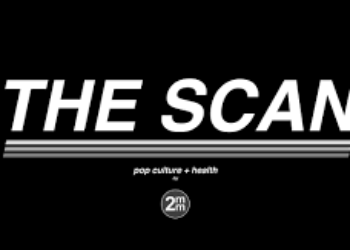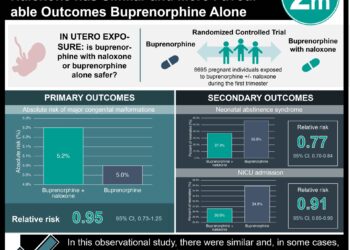Maternal anti-epileptic use linked to autism disorders in offspring
Image: PD
1. Maternal valproate use is associated with an increased risk of autism and other autism spectrum disorders in children.
2. The increased risk of autism spectrum disorders associated with maternal valproate use is significantly higher than the risk conferred by other anti-epileptic drugs.
Evidence Rating Level: 2 (Good)
Study Rundown: The present study examines the relationship between maternal antiepileptic drug (AED) use during pregnancy and the development of autism spectrum disorders (ASDs) in their children, particularly in those exposed to valproate. They found a significantly increased risk of ASDs in children of mothers who used valproate compared with other AEDs. Valproate has been linked to multiple other congenital and developmental disorders, notably neural tube defects, and more recent evidence has suggested a potential link to childhood autism and other ASDs. The authors’ findings are the first from a large-scale, population-based study to provide support to this notion.
As a population-based study, this investigation relies on the integrity of the Danish Civil Registry System, which has only an 81% positive predictive value for determining a maternal epilepsy diagnosis. Moreover, the study depends on a national registry of prescriptions to determine maternal AED usage, though the accuracy of this system is not known. Therefore, the accuracy of the results cannot be definitely determined. Nonetheless, the authors present a very robust increase in absolute ASD risk associated with valproate use, and any variations due to false positive diagnoses are likely irrelevant. While the cross-sectional study design has inherent limitations and biases, it still lends strong support to the proposed link between AEDs and ASDs in the absence of prospective studies. Further studies should evaluate the findings in a prospective setting, but in the meanwhile, physicians have reason to be cautious in their use of valproate in reproductive-aged women.
Click to read the study, published today in JAMA
Click to read an accompanying editorial in JAMA
Relevant Reading: The prevalence of neurodevelopmental disorders in children prenatally exposed to antiepileptic drugs
In-Depth [cross-sectional study]: The authors assessed all children born in Denmark from 1996-2006 (n=655,615) for in utero AED exposure and current diagnoses of autism spectrum disorders. Of these, 2,644 children were exposed to AEDs, 508 of which were exposed to valproate. Additionally, 5,437 were diagnosed with autism spectrum disorders, 2,067 of these involved childhood autism. In children exposed to valproate in utero, the absolute risks of childhood autism and any ASD were 2.50 and 4.42 percent, both of which were significantly higher than the risks in children not exposed to valproate (p<0.05), regardless of valproate dose. The increased risk remained significant when controlling for parental epilepsy and psychiatric disorders. Moreover, ASD risk was not elevated in children whose mothers ceased valproate prior to thirty days pre-conception. Finally, no significantly increased risk of ASDs was found in children exposed to other widely used AEDs.
By Jeff Dewey and Rif Rahman
More from this author: Lifestyle modifications vary based on socioeconomic status in cardiovascular patients (PURE Study), Duloxetine reduces neuropathic pain in chemotherapy patients, Patients at long-term increased mortality risk following stroke at young age, Longer-duration breast feeding not associated with lower risk of obesity in childhood, Aneurysm diameter useful in determining frequency of surveillance
© 2013 2minutemedicine.com. All rights reserved. No works may be reproduced without written consent from 2minutemedicine.com. Disclaimer: We present factual information directly from peer reviewed medical journals. No post should be construed as medical advice and is not intended as such by the authors or by 2minutemedicine.com. PLEASE SEE A HEALTHCARE PROVIDER IN YOUR AREA IF YOU SEEK MEDICAL ADVICE OF ANY SORT. Content is produced in accordance with fair use copyrights solely and strictly for the purpose of teaching, news and criticism. No benefit, monetary or otherwise, is realized by any participants or the owner of this domain.







